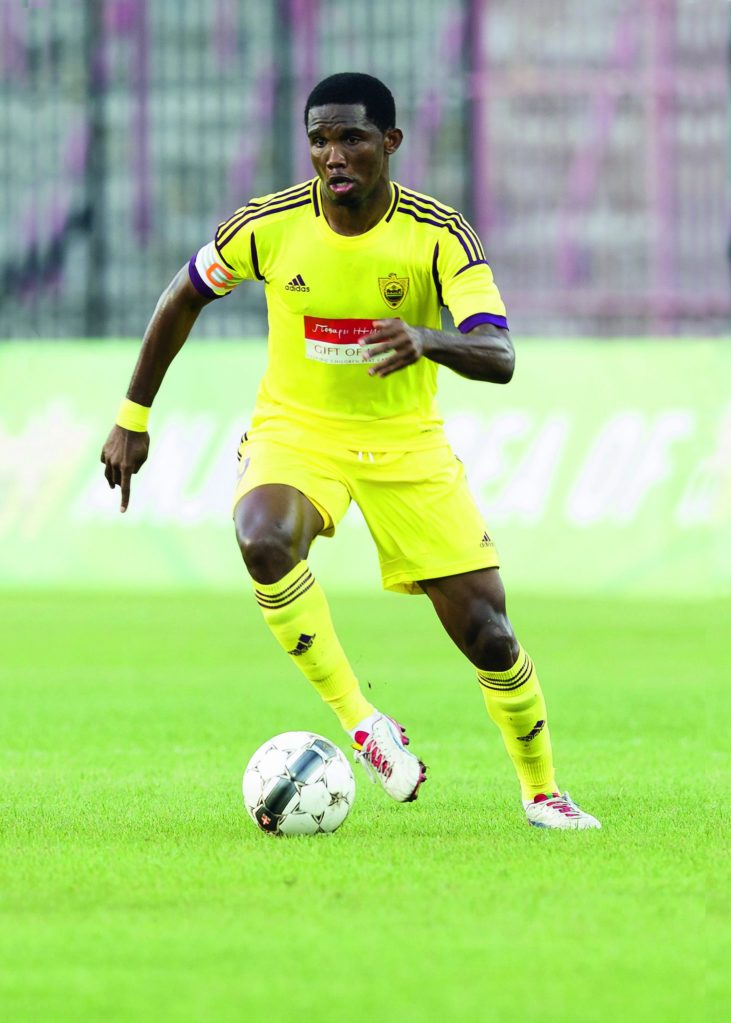Unearthing hidden gems at a grassroots level is vital for most African countries, but it is one of the most difficult aspects of football administration.
Scouts have a keen eye for talent, but they also need to identify other factors. Silky skills alone will not guarantee success for any player.
I would say that most African countries believe that somewhere out there, on the dusty streets of a remote village, is the next Didier Drogba, Samuel Eto’o or George Weah.
You are not just looking for one special individual, but rather a new wave of talent to take your football forward into the future. What you really need to find is potential; it is highly unlikely you will find anything near the finished article.
You need to be able to look at a player between the ages of 13 and 16 and take into account his current attributes before deciding if he has potential.
Loading...
There is no exact science to this. Football history is littered with players who looked like world-beaters when they were 15 years old, but faded into obscurity a year later.
Then there is an element of luck. You need to be in the right place at the right time to spot a gifted player. There is a difference between gifted players and talented players. Some players have natural ability on the ball, great dribbling skills, quick feet and an accurate shot, but they do not have the potential to develop an all-round game that will enable them to make a career out of football. A player may be able to make an accurate 10-yard pass to a teammate but unable to hit a 30-yard ball.
Individual skills are one thing, but football is a team sport and young players must be able to blend into a side and be able to use the ball to help those around them.
Every player needs basic skills to play the game. Once those are identified, you can look for areas of excellence to work with. For example: a center-back should be good with his head; a striker should be able to shoot with both feet; a winger should be quick and have the ability to cross.
If these skills are not immediately obvious, a coach needs to believe that they can push them to the required level. It is often guess work and there are many other elements to be considered.
There are the physical factors to take into account, which have become more important in the modern game. Players are now well-oiled athletic machines, using muscle as well as skill.
Generally, players with a slight physical stature will struggle to make it as professionals because they are too easily knocked off the ball. There is a lot you can do to help players develop in this area, but genetics will always work against some. The quick pace of the game today also requires excellent aerobic capacity, endurance and power. Again, training will help most players reach the required level, but for some the capability is just not there. If a player cannot last 90 minutes in a game then he will be unable to make it at the highest level.
Another huge distinction between those that will be successful and those that are not is personality. You can have all the skill in the world, but if your attitude is wrong it will be worthless.
Discipline, desire, determination, dedication, drive, self-confidence, motivation and concentration are all important factors in helping a player make the most of his physical attributes.
Lionel Messi and Cristiano Ronaldo did not become global superstars on skill alone. They had the drive to do hours of extra training, when everybody else had gone home, and the dedication to stay away from off-the-field temptations.
Again, this is something that can be encouraged with youngsters, but they need to want to take on the challenge themselves. It cannot be forced.
The attributes mentioned above can often be dependent on the sociological factors that players find around them. What level of education have they received to date? Do they come from a stable and nurturing background?
These can determine the type of personality within individuals and how easy it will be to nurture their skills—on and off the pitch.
You also have to assess how well a young player takes instructions and whether they can adhere to tactical discipline.
In a well-oiled team, each player must understand and stick to their roles within the side. When a player has the ball, his teammates must know exactly where to position themselves. They must also never deviate from that unless instructed otherwise by the coach.
It sounds simple, but there are many scenarios that a player must understand. Displaying tactical discipline can be extremely difficult for some. No matter how skilful a player is, they will become a hindrance to the team if they cannot follow a coach’s orders.
All of this is not foolproof and individuals develop at different rates. There are many players who were released by their club before they made the first team that went on and enjoyed stunning careers elsewhere.
When they were 18, they did not show enough of the above, but by the time they reached 23, they had a level of maturity that made it easier for them.
Samuel Eto’o was released by Real Madrid when he was 19 years old, but can now point to four African Footballer of the Year titles, three UEFA Champions League wins, league titles in Spain and Italy and the status as one of Africa’s greatest ever players.
History says that Real Madrid was wrong, but did Eto’o show enough to suggest he would go on to be a superstar? You would have to say he did not and it highlights the difficulty in deciding who will make it and who will not. There is no crystal ball.
Loading...
